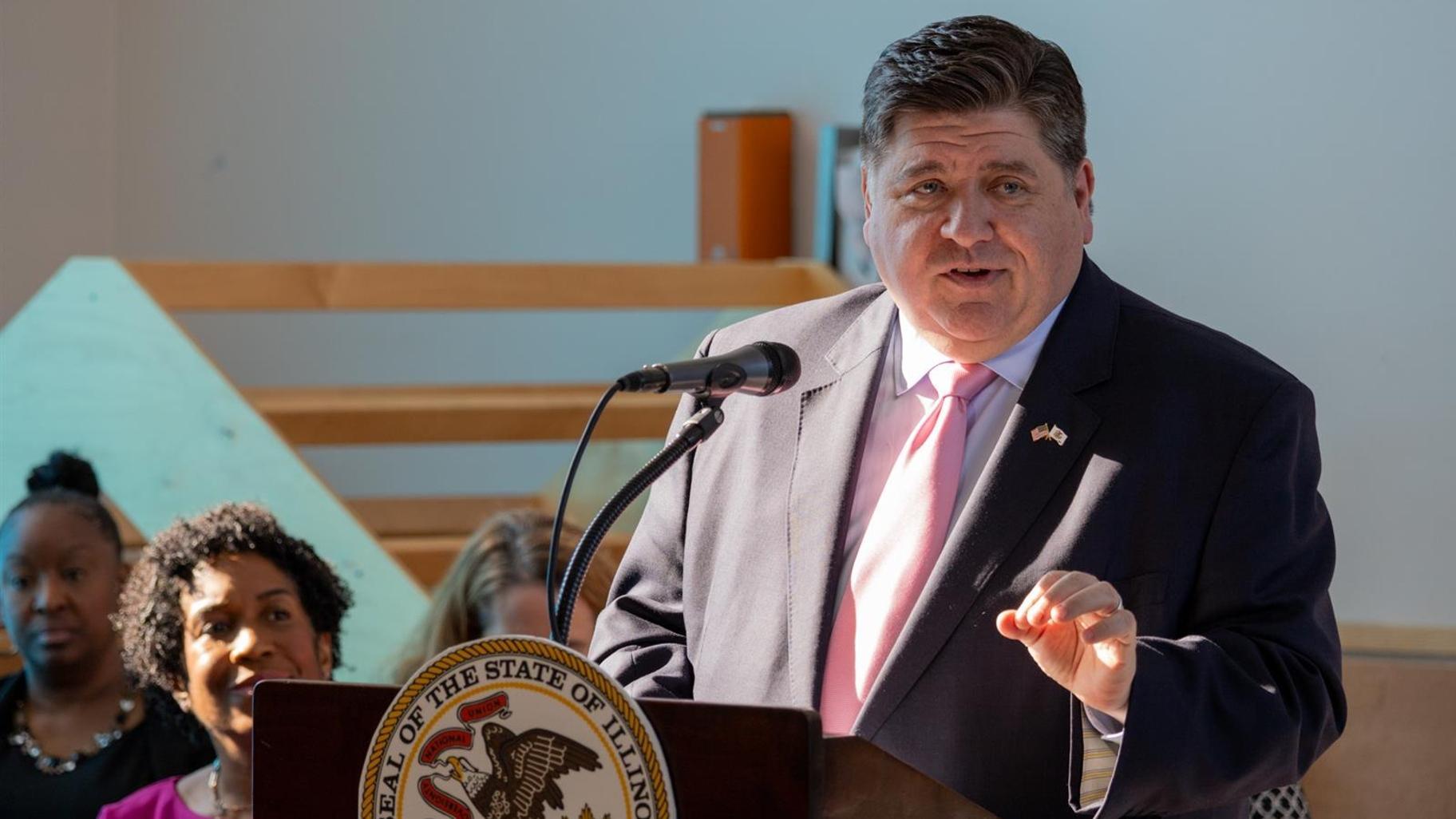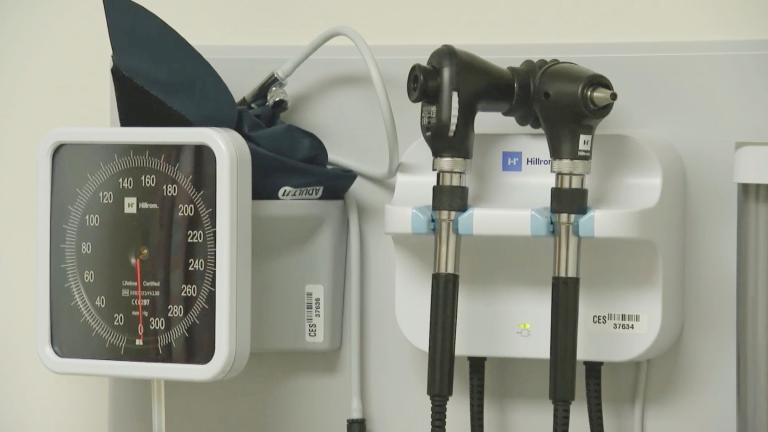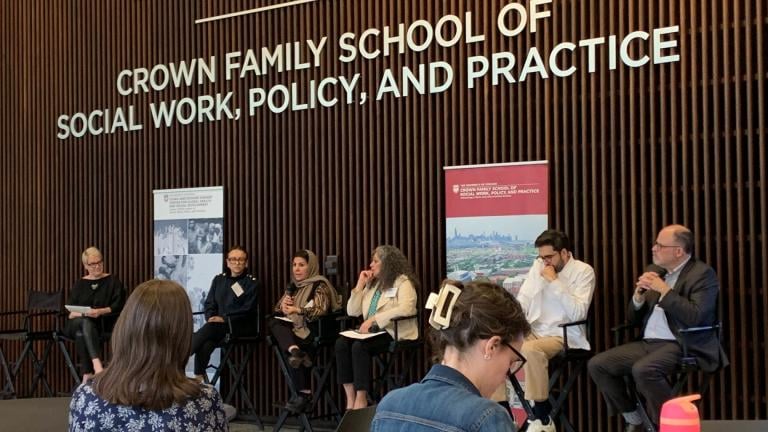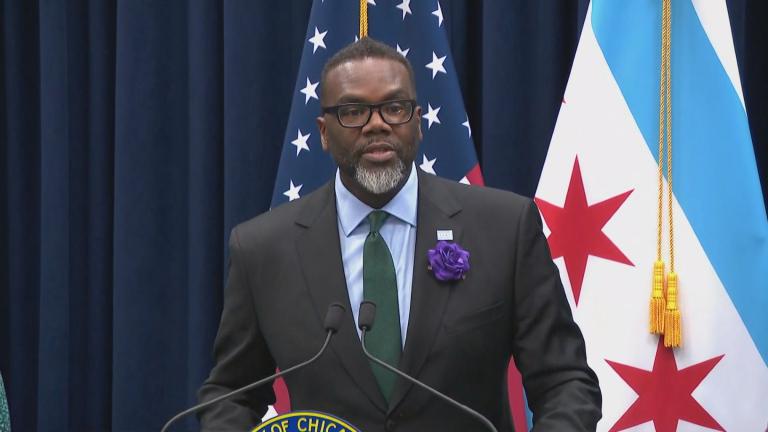 Gov. J.B. Pritzker addresses the news media. (Andrew Adams / Capitol News Illinois)
Gov. J.B. Pritzker addresses the news media. (Andrew Adams / Capitol News Illinois)
Illinois Gov. J.B. Pritzker and Cook County Board President Toni Preckwinkle said Tuesday they had agreed to spend an additional $250 million to care for the men, women and children sent to Chicago from the southern border.
A “joint planning effort” by state, city and county officials pegged the current cost of caring for the migrants at an additional $321 million through the end of 2024, according to a joint statement from Pritzker and Preckwinkle.
That cost is on top of the $150 million already set aside in Chicago’s 2024 budget, the $100 million earmarked in Cook County’s budget to care for the migrants, and $160 million in state funds Pritzker agreed to spend to care for the migrants in mid-November, officials said.
That budget does not include the nearly certain cost of caring for a new surge of migrants to Chicago, which has long been expected once the weather warms up and as the city prepares to host the Democratic National Convention in Chicago.
“With thousands of asylum seekers continuing to come to Chicago in desperate need of support and with Congress continuing to refuse to act — it is clear the state, county, and city will have to do more to keep people safe,” Pritzker said in the statement, singling Preckwinkle out for praise.
That leaves a $70 million gap in what the state, county and city needs to maintain the shelter system’s 15,000 beds, health care and wraparound services through the end of the year, officials said.
Johnson told Pritzker and Preckwinkle he would fill that remaining gap during a meeting at City Hall on Feb. 5 and ask the City Council to approve the additional spending, according to sources familiar with those discussions.
Sources told WTTW News Johnson has declined to fulfill that commitment, prompting Pritzker and Preckwinkle to issue a joint statement Thursday morning — the latest sign of a deep breach between the mayor and the governor over the migrant crisis and an indication of significant tension between Johnson and Preckwinkle, who have been close political allies.
However, Johnson repeatedly declined to answer questions about whether that he reneged on that commitment — or even if he promised to take it to the City Council — at a contentious news conference after Thursday’s City Council meeting.
“There is no disconnect,” Johnson said, twice reminding reporters that Pritzker pledged to use $65 million to open a 200-bed shelter in a vacant CVS drugstore in Little Village and to house another 2,000 migrants in a massive, winterized base camp. Plans to build that structure in Brighton Park were scuttled by state officials, citing environmental concerns.
A spokesperson for Preckwinkle did not respond to a request for comment from WTTW News.
Chicago officials have been pleading with state officials for months to take a more active role in addressing the humanitarian crisis engulfing the city.
Pritzker said he would ask lawmakers to include $182 million in the state’s budget for the 2025 fiscal year, which starts July 1.
Through mid-November, the state had already spent $478 million to care for the migrants, state officials said.
“As critical funding for this ongoing humanitarian crisis stalls in Congress, Cook County stands committed to the well-being of the region,” Preckwinkle said.
More than 35,500 migrants, who are all in the country legally after requesting asylum, have arrived in Chicago since August 2022, most on buses paid for by Texas Gov. Greg Abbott, a Republican, as part of an effort to damage President Joe Biden’s chances for reelection and divide Democratic voters.
Nearly 12,900 migrants are now living in city shelters, the lowest point in several months. In January, as many as 15,000 people were living in city shelters. Fewer than three dozen people were waiting to be placed in a city shelter as of Thursday morning, Chicago officials said.
As many as 5,700 people could be forced to leave city shelters on March 16, when Johnson has said city officials will begin enforcing the 60-day limit on shelter stays after a two-month delay.








